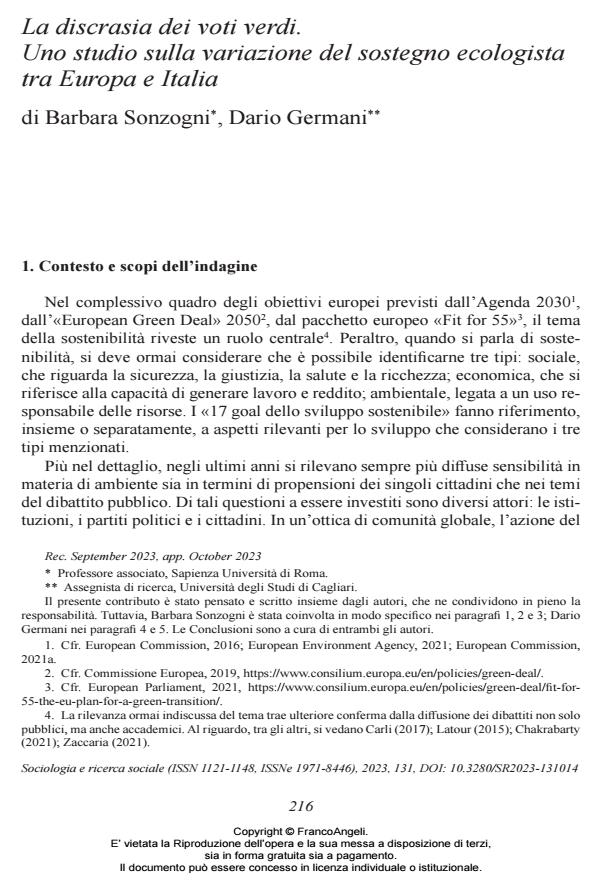The discrepancy of the Green vote. A study on the variation of ecological support between Europe and Italy
Journal title SOCIOLOGIA E RICERCA SOCIALE
Author/s Barbara Sonzogni, Dario Germani
Publishing Year 2023 Issue 2023/131
Language Italian Pages 14 P. 216-229 File size 277 KB
DOI 10.3280/SR2023-131014
DOI is like a bar code for intellectual property: to have more infomation
click here
Below, you can see the article first page
If you want to buy this article in PDF format, you can do it, following the instructions to buy download credits

FrancoAngeli is member of Publishers International Linking Association, Inc (PILA), a not-for-profit association which run the CrossRef service enabling links to and from online scholarly content.
The central nature of the theme of sustainability both at the public insti- tutional and private level is undisputed. It is at the heart of international and national intervention policies and people feel increasingly involved, such that individual sensitivity to these issues is increasingly developed and also found in concrete changes of people’s focus and lifestyles. Starting from this framework, this paper aims to investigate the gap – by comparing Europe and Italy – and the coherence of the widespread feeling of sensitivity towards environmental issues on the part of citizens and the electoral consensus of the Green parties with their tradition of paying greater attention to these issues. The analysis was carried out empirically analyzing Italy through the construction of a dataset characterized by context variables of the single regions, thus deepening the co- herence between the trends in terms of sensitivity towards green issues and the political support to parties that champion such issues. The picture that emerges raises significant questions about the reasons, dynamics and factors underlying the variation in support of the Green parties between the different contexts un- der consideration.
Barbara Sonzogni, Dario Germani, La discrasia dei voti verdi. Uno studio sulla variazione del sostegno ecologista tra Europa e Italia in "SOCIOLOGIA E RICERCA SOCIALE " 131/2023, pp 216-229, DOI: 10.3280/SR2023-131014